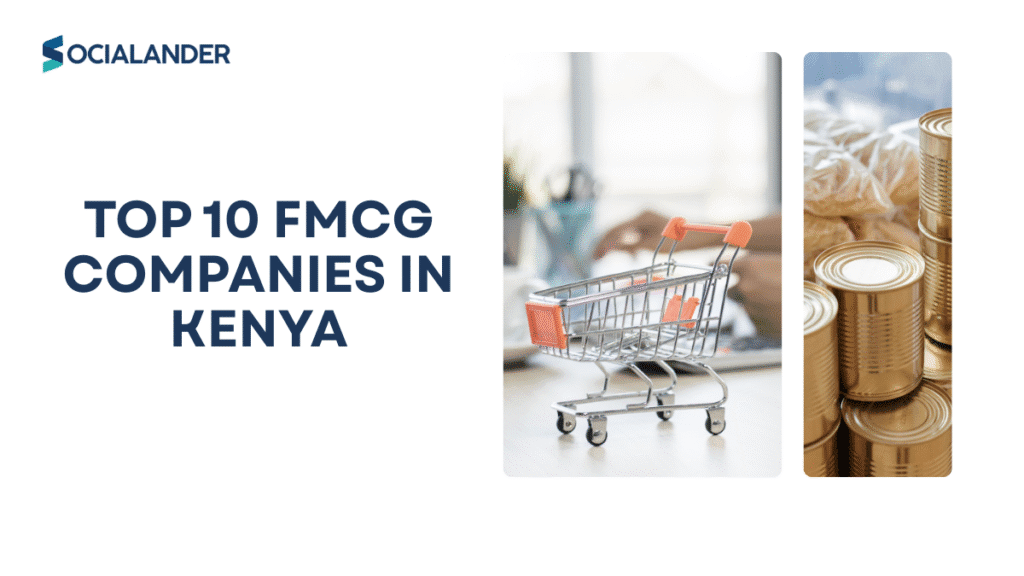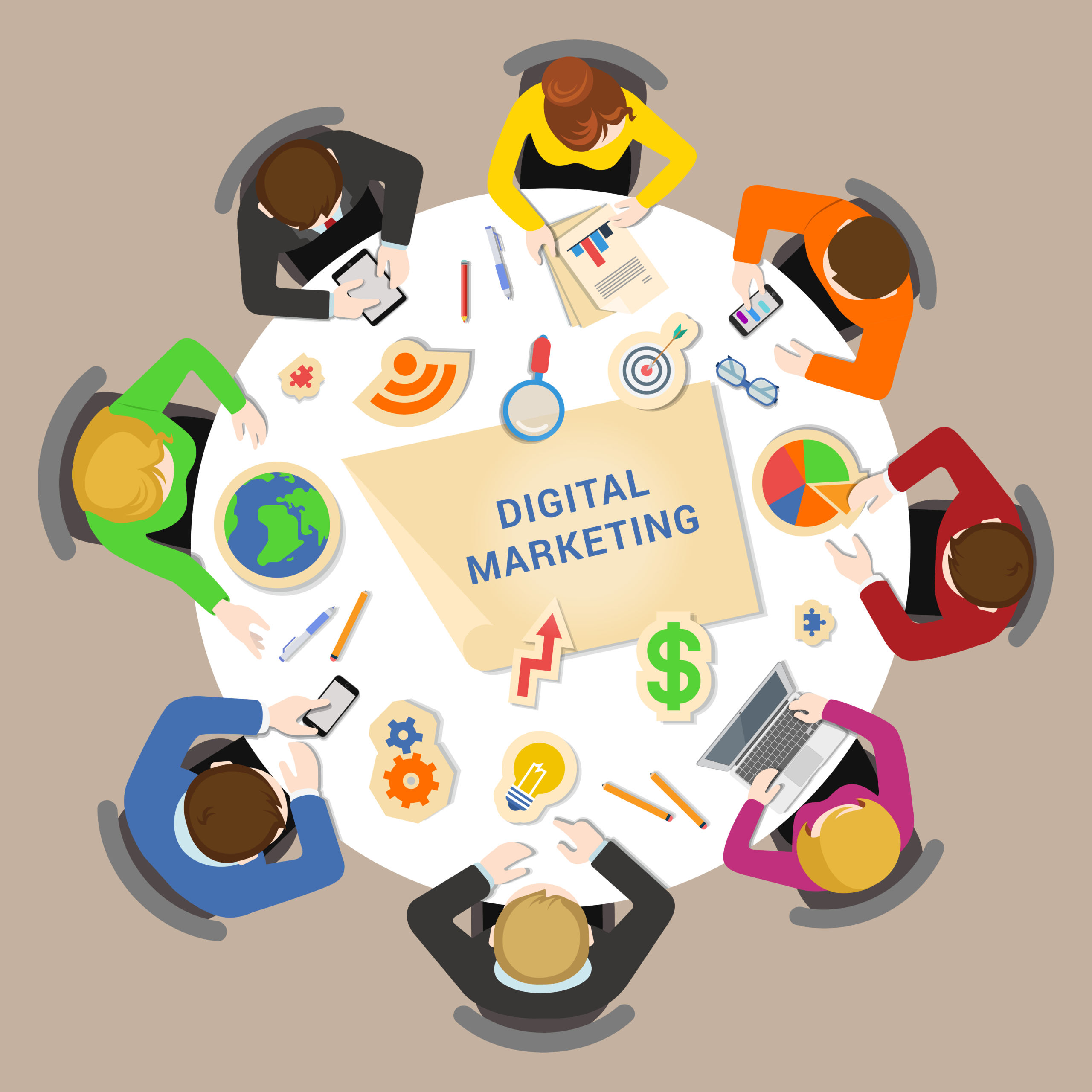
Kenya’s Fast-Moving Consumer Goods (FMCG) sector is a cornerstone of the nation’s economy, driven by a growing population, increasing urbanization, and a dynamic consumer base. These companies, producing everyday essentials from food and beverages to personal care products, operate in a highly competitive and fast-paced environment.
According to NIQ Data Measurement for 2023, inflationary pressure was the main driver of Kenya’s FMCG Markets. Categories that saw the biggest margin of value increase were diapers, toilet soap, non-bulk water, energy drinks and nectars categories.
We have researched and compiled a list of the most influential FMCG players in Kenya, examining their market presence, product range, and impact on the local economy.
Leading FMCG Companies in Kenya
The FMCG market in Kenya is characterized by a mix of local enterprises and international powerhouses. The following companies have distinguished themselves through their market share, brand recognition, and a wide variety of products that have become staples in Kenyan homes.
1. East African Breweries Limited (EABL)
As a subsidiary of Diageo, EABL is arguably the most dominant force in Kenya’s beverage industry. Its extensive portfolio includes some of the country’s most popular beer, spirits, and non-alcoholic beverages. EABL’s strong brand presence and widespread distribution network have made it a leader in the alcohol and beverage market.
2. Brookside Dairy Limited
A leading name in the dairy industry, Brookside Dairy has built its brand on a foundation of trust and quality. The company processes and markets milk, yogurt, butter, and other dairy products, sourcing its milk from thousands of smallholder farmers across the country.
3. Coca-Cola Beverages Africa – Kenya (CCBA)
As the largest bottler for The Coca-Cola Company in Africa, CCBA plays a major role in the Kenyan non-alcoholic beverage market. Its products are ubiquitous, available in nearly every shop, restaurant, and vending machine nationwide.
4. Bidco Africa
Bidco Africa has grown from a small edible oils manufacturer to one of the largest and most diversified consumer goods companies in East Africa. The company’s portfolio spans various categories, including food, beverages, and household care products.
5. Unilever Kenya
A multinational giant with a significant local presence, Unilever is a household name in Kenya. The company’s products are deeply integrated into daily life, from home care to personal hygiene. Its strong brand portfolio and marketing campaigns have secured its top position in the market.
6. Unga Group Limited
As one of Kenya’s oldest and most respected food processing companies, Unga Group has a long history of providing staple foods to the nation. The company’s focus on quality and consistency has made its brand a trusted choice for generations.
7. Procter & Allan (E.A.) Ltd.
Procter & Allan is a key player in the breakfast cereals and snack food market. The company produces a wide variety of nutritious and convenient products that cater to modern urban lifestyles.
8. Kenafric Industries Ltd.
Kenafric is a major manufacturer of confectioneries, juices, and other food and beverage products. The company has a diverse product range and a strong regional presence, competing effectively with larger multinational corporations.
9. Kevian Kenya Limited
Known for its popular Afia and Pick ‘N’ Peel fruit juices, Kevian Kenya has carved out a significant niche in the non-alcoholic beverage sector. The company’s commitment to quality and natural ingredients has resonated with health-conscious consumers.
10. British American Tobacco (BAT) Kenya
BAT is a leading player in the tobacco industry, with a long-standing history in the country. While facing increasing health and regulatory scrutiny, the company remains a major economic contributor and a significant employer.
11. Del Monte Kenya
Del Monte is a prominent name in the fruit processing and export business. The company operates one of the largest pineapple plantations in the world and is a key player in the fruit juice and canned fruit market.
12. Premier Foods Industries Ltd.
Premier Foods is a prominent manufacturer of food products, specializing in flour, pasta, and other cereals. The company’s focus on high-quality ingredients and modern processing techniques has earned it a strong reputation.
13. Daima Dairy (Sameer Agriculture & Livestock Limited)
Daima Dairy has become a key player in the dairy sector, challenging established brands with a strong focus on quality and a growing product range. The company’s efforts to innovate and expand its distribution have paid off, making it a recognizable brand.
14. Highland Mineral Water Company
Highlands is a well-known name in the bottled water and carbonated soft drink market. The company’s brand is synonymous with purity and refreshment, holding a strong position in a market that is increasingly health-conscious.
15. Dairyland Kenya Ltd.
Dairyland is a prominent dairy product manufacturer, especially known for its ice cream and other flavored dairy drinks. The company has successfully captured a significant share of the market by offering a wide variety of flavors and products that appeal to a younger demographic.
In-Depth Look at Kenya’s FMCG Sector
Kenya’s FMCG sector is a complex ecosystem. While we’ve highlighted the top players, it’s important to understand the broader trends and challenges that shape the market. The industry is marked by intense competition, with companies constantly innovating to stay ahead. Rising inflation and shifting consumer habits, such as a preference for private labels and discounted products, have forced brands to become more agile in their pricing and marketing strategies.
Challenges and Opportunities for FMCG Companies
| Challenges | Opportunities |
| Rising Inflation: High inflation rates reduce consumers’ purchasing power, leading to a decline in sales volumes. | Digital Transformation: The shift to e-commerce and digital marketing offers new avenues for reaching customers and streamlining supply chains. |
| Intense Competition: The market is crowded with both local and international players, leading to price wars and pressure on profit margins. | Product Innovation: A growing health-conscious and environmentally-aware consumer base creates a demand for new, sustainable, and organic products. |
| Supply Chain Disruptions: Infrastructure challenges and high transportation costs make it difficult to maintain an efficient supply chain, especially in rural areas. | Expansion into Rural Markets: With a large rural population, there is untapped potential for companies to expand their distribution networks beyond major cities. |
| Regulatory Hurdles: Stricter food safety, labeling, and tax regulations can increase operational costs and complexity. | Vertical Integration: Companies that take control of their production and distribution processes can improve efficiency and reduce costs. |
Summary
The FMCG sector in Kenya is a vibrant and essential part of the economy, providing jobs and daily necessities to millions. As we’ve seen, it is dominated by both multinational corporations and powerful local companies, all of which are continuously adapting to an evolving market. The top players have succeeded by building strong brands, investing in distribution, and responding to consumer needs. Just as we observed in Nigeria and Ghana’s FMCG industry, these companies represent the backbone of the country’s consumer economy, providing essential products while driving employment, industrial development, and economic growth.
Here are some key takeaways:
- Trust is paramount: Consumers in Kenya value brands they trust, often built through years of consistent quality and availability.
- The informal sector is critical: A significant portion of FMCG sales happens in small shops, making a robust distribution network to these areas vital for success.
- Adaptability is key: Companies that can navigate challenges like inflation and adapt to changing consumer demands for health and sustainability are the ones that will thrive.
- Innovation drives growth: From new product development to leveraging digital technology for marketing and sales, innovation is a key differentiator in a competitive market.





